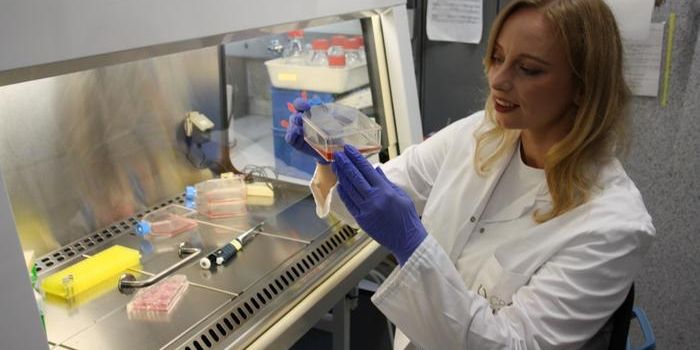Revealing how Gene Activity is Controlled in Microbes
Bacterial infections can be difficult to treat, and by 2019, they were causing over a million deaths per year. The problem of antibiotic resistance is expected to get worse in the coming years. Bacteria are able to manipulate the expression of their genes in response to environmental conditions, including the presence of antibiotics. Active microbial genes are transcribed into messenger RNA (mRNA) before being translated into proteins. The production of mRNA molecules is essential to antibiotic resistance in microbes, but the process has not been fully understood.
New research reported in Nature has revealed more about gene expression in bacteria. In this study, the investigators focused on gene expression in cells that are growing before cell division. The work showed that as an enzyme called DNA polymerase travels down the genome to copy it, it also disrupts any transcription that might be occurring at the site of the gene that's in the process of being copied. As this happens, the scientists were able to learn more about the regulation of the disrupted gene.
"Our study results show that the constant replication of genes during the cell cycle as the bacterial cells reproduce and grow can be exploited to learn about many aspects of how genes are regulated," said first study author Andrew Pountain, PhD, a postdoctoral researcher at NYU Langone Health.
As the levels of mRNA change in response to the replication of genes, a transcription-replication interaction profile, or TRIP can be created. Certain TRIP wave patterns were associated with specific regulatory characteristics of genes. For example, when a gene is being repressed, which is one type of regulation, a protein is physically blocking the transcription of the gene. These repressed genes also generate a specific, spiky TRIP pattern.
"Our aim is to understand how gene regulation shapes these TRIPs, with a goal of using them to diagnose gene regulation across the entire set of thousands of genes in the bacterium," said senior study author Itai Yanai, a professor at NYU Langone's Institute for Systems Genetics. "We hope that our further investigations of gene expression profiles will offer insight into how groups of genes respond to disruptions or changes in their environment."
Now the scientists want to known more about the TRIPs of genes that are related to bacterial pathogenicity. This may help them find ways to disrupt the expression of these infection-promoting genes.
Sources: NYU Langone Health, Nature









